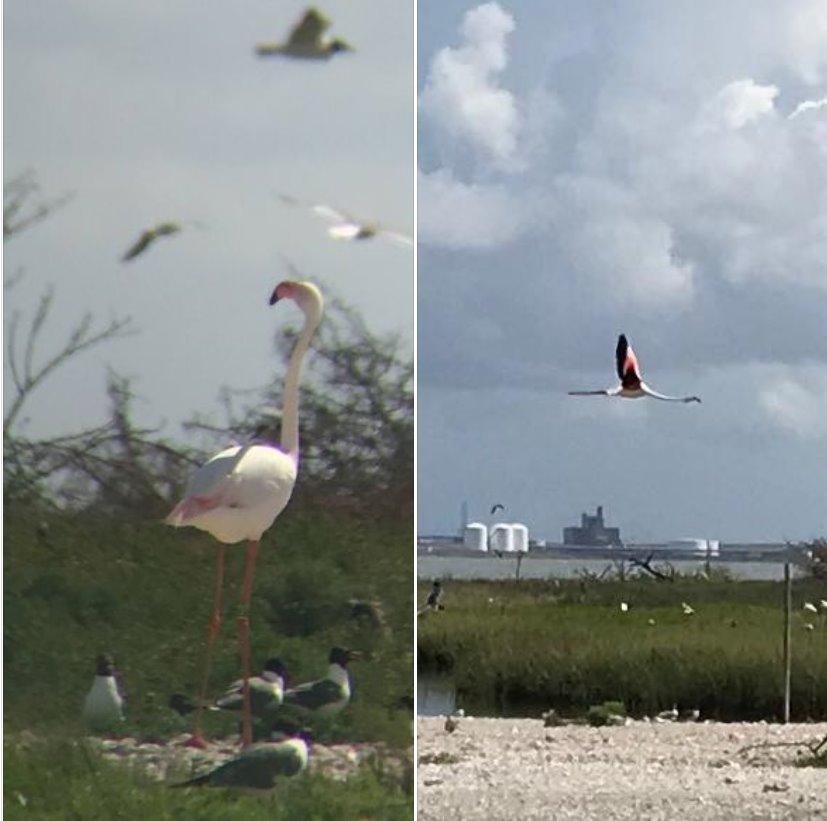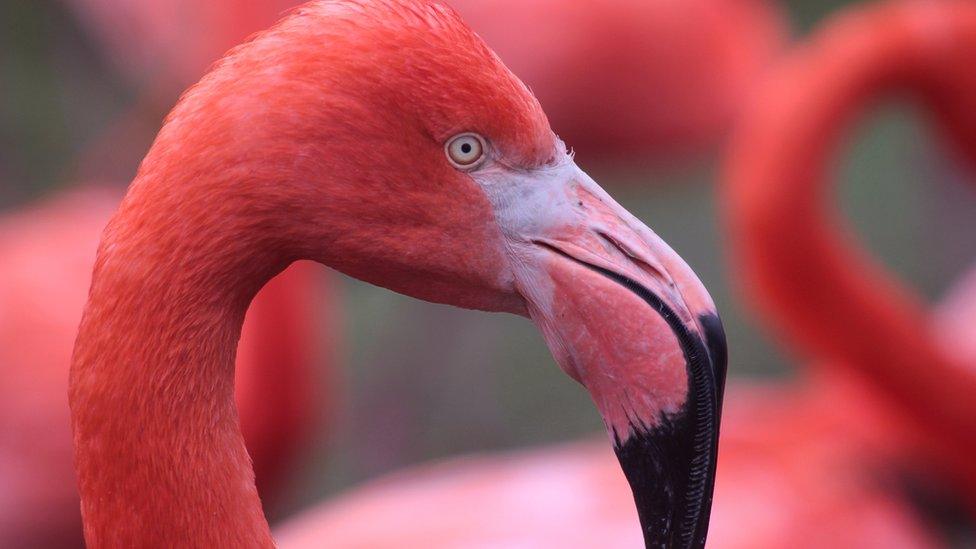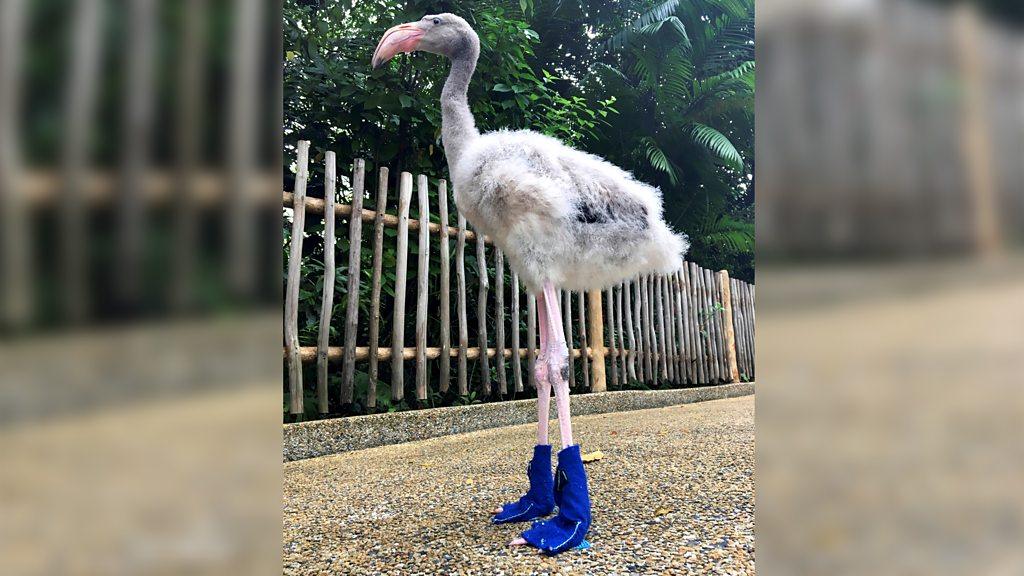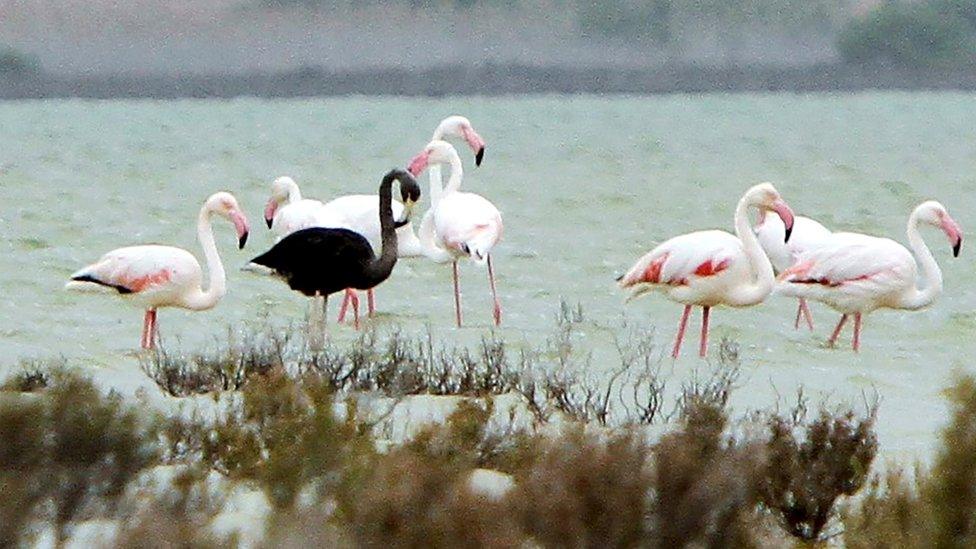A flamingo which went missing 17 years ago has been spotted!
- Published
- comments

The flamingo was spotted in Texas earlier this month
An African flamingo which escaped from a zoo in Kansas has been spotted...17 years after it went first missing!
A video of the bird, officially known as number 492, was posted online by the Coastal Fisheries Division of the Texas Parks and Wildlife Department.
It shows the flamingo, which has also been nicknamed Pink Floyd, roaming free off the coast of Texas earlier this month.
"Looks like Pink Floyd has returned from the 'dark side the of moon'! Spotted at Rhodes Point in Cox Bay near Port Lavaca by David Foreman on March 10," Coastal Fisheries posted on social media.
The recent find isn't the first time number 492 has been identified out in nature, and it's also been seen other states including Wisconsin and Louisiana.
The events which led to the flamingo, along with a fellow friend, making their get away date back to 2005.

The bird was previously spotted four years ago
At the time, The Sedgwick County Zoo in Wichita, Kansas were clipping the wings of their exotic birds to make sure they weren't able to fly away.
However, before staff at the zoo reached the two flamingos, they were able to escape and number 492 hasn't looked back since. The flamingo it left the zoo with, however, hasn't been seen since it was spotted once in the state of Minnesota.
Flamingos are well known for their flamboyant pink colour, but they're not actually born that way!
The birds are typically born with grey or white feathers and the pink colour comes from pigments found in a lot of the foods they eat like shrimp and algae.

Flamingos are know for their vibrant pink feathers
Pink Floyd also escaped the zoo before staff were able to find out its sex, although it's thought to be male, and it's actual age is also a bit of a mystery.
It's believed the flamingo would have been between the ages of three and five when it left the zoo, making it at least 20 today.
Staff at the zoo have accepted the flamingo's chosen life outside their care and have no plans to recapture the bird.
Pink Floyd, who is thought to originally be from Tanzania, has even made friends along the way, hanging out with a flamingo from the Caribbean on its travels.
The zoo says that if attempts were made to remove the flamingo from its new found habitat, it could end up causing more problems.
Take a look at this baby flamingo's special shoes!
"It would only disturb wildlife where it's been found and possibly could do more damage to the bird than just leaving him alone," former spokeswoman for the zoo Christan Baumer told the Associated Press in 2007.
More than 15 years later and the zoo has very much accepted what happened all those years ago.
"Now we're able to look back on it with some humour," a spokesperson for the zoo told the Washington Post. "Good for him. He's living his best life down in Texas."
- Published17 June 2015

- Published18 August 2017

- Published10 April 2015

